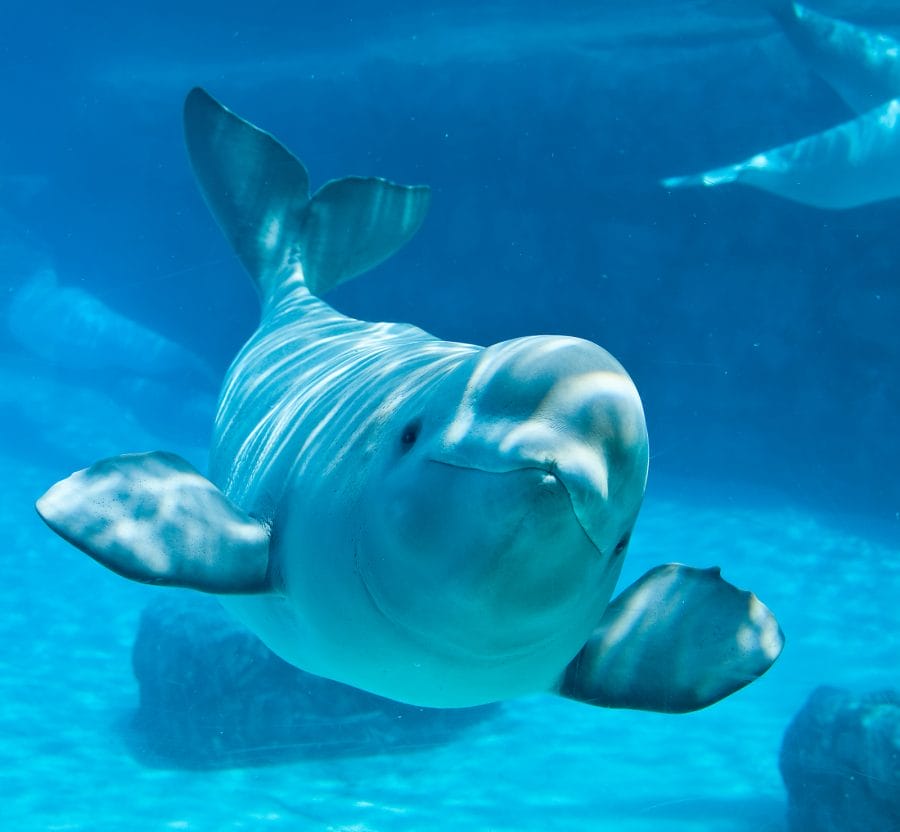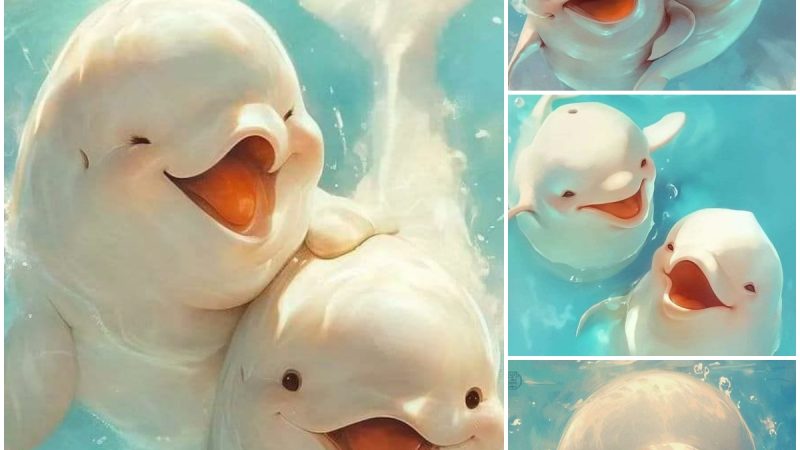Echoes of the Arctic: The Vocalizations of Beluga Whales

In the vast expanse of the Arctic waters, a symphony of sound reverberates beneath the icy surface. Amongst the creatures that call this frigid domain home, the beluga whale stands out for its remarkable vocalizations. Often referred to as the “canaries of the sea” due to their diverse range of sounds, belugas possess a complex and captivating language that has intrigued scientists and enthusiasts alike.

Beluga whales, or Delphinapterus leucas, are known for their distinctive white coloration and bulbous forehead. However, it is their vocal prowess that truly sets them apart. These marine mammals produce an array of clicks, whistles, and clangs, which serve various communication purposes within their social groups.

One of the most fascinating aspects of beluga vocalizations is their diversity. Researchers have identified a wide range of sounds, each serving a specific function. From high-pitched whistles used for socializing and maintaining group cohesion to clicks for echolocation and navigation, beluga whales exhibit a sophisticated language that rivals that of many other cetacean species.

Studies have shown that belugas use vocalizations not only for communication but also for navigating their icy environment. The unique acoustics of the Arctic waters allow sound to travel vast distances, enabling belugas to locate prey and navigate through dark and murky conditions with remarkable precision.
Furthermore, beluga vocalizations play a crucial role in social interactions and familial bonds. These whales live in tight-knit pods and rely on vocalizations to coordinate activities such as hunting, breeding, and protecting their young. The intricate nature of their communication suggests a level of intelligence and social complexity that continues to fascinate researchers.

However, the future of beluga vocalizations faces challenges amidst the rapidly changing Arctic environment. Climate change, industrial activities, and habitat degradation threaten the delicate balance of this fragile ecosystem. As sea ice melts and human disturbances increase, the acoustic landscape of the Arctic is undergoing significant transformations, potentially impacting the communication and behavior of beluga whales.
Efforts to study and protect beluga vocalizations are more critical than ever. Conservation initiatives aim to mitigate anthropogenic impacts and preserve the unique vocal culture of these magnificent creatures. By understanding and safeguarding their intricate language, we can hope to ensure the continued survival and well-being of beluga whales in the Arctic waters they call home.

In conclusion, the vocalizations of beluga whales echo through the Arctic, serving as a testament to the rich diversity and complexity of marine life in this remote region. As stewards of the oceans, it is our responsibility to cherish and protect these voices of the sea, preserving them for generations to come.



